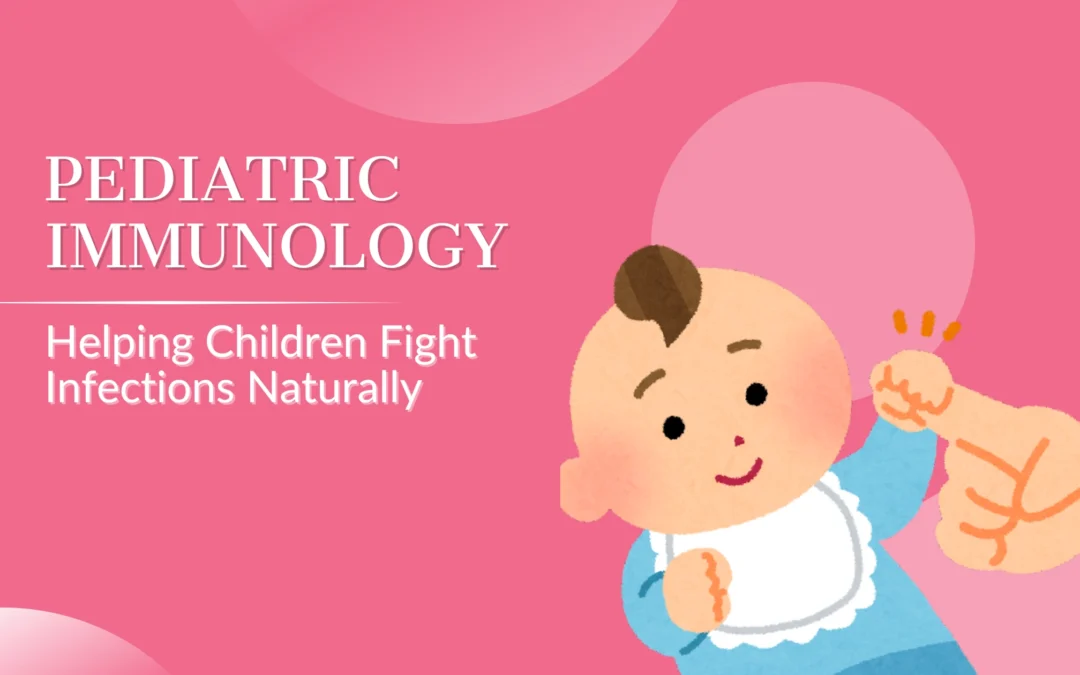Frequent infections in children can be concerning for parents. While it’s normal for young children to catch a cold or flu occasionally, recurrent infections might signal an underlying issue with their immune system. Pediatric immunology is a specialized field that deals with diagnosing and treating immune system disorders in children. Dr. Shraddha Chandak, a trusted pediatrician with expertise in immunology, helps families understand and manage these conditions, providing effective treatments and improving the quality of life for her young patients.
What is Pediatric Immunodeficiency?
Pediatric immunodeficiency refers to conditions where a child’s immune system is either underactive or overactive, leading to an increased vulnerability to infections or autoimmune diseases. There are two primary types:
- Primary Immunodeficiency: This condition is usually inherited and occurs when a child’s immune system doesn’t develop properly. Primary immunodeficiencies are present from birth and often lead to frequent infections in early childhood.
- Secondary Immunodeficiency: Unlike primary immunodeficiency, secondary immunodeficiency is acquired due to external factors such as chemotherapy, viral infections, or medications like steroids that suppress the immune system.
Symptoms of Immunodeficiency in Children
Children with immunodeficiency disorders tend to have frequent or prolonged infections that are difficult to treat. Common signs include:
- Frequent Ear, Sinus, or Lung Infections: Recurrent infections, especially those that don’t respond well to antibiotics, may be a sign of immunodeficiency.
- Delayed Growth and Development: Immune system disorders can affect a child’s growth, causing delays in reaching developmental milestones.
- Chronic Diarrhea or Skin Abscesses: Infections affecting the gastrointestinal system or skin may be persistent in children with weakened immune systems.
Unusual Response to Vaccines: Children with immunodeficiency might not respond to vaccinat
When to Seek Help from a Pediatric Immunologist
If your child has frequent infections, struggles with slow growth, or exhibits symptoms of an overactive immune system like rashes or joint pain, it may be time to consult a pediatric immunologist. Dr. Shraddha Chandak offers thorough evaluations to diagnose immune deficiencies, utilizing blood tests and specialized screenings to assess the immune system’s function.

Common Treatments for Immunodeficiency Disorders
Once a diagnosis is made, treatment depends on the type and severity of the disorder. Some common treatments Dr. Chandak may recommend include:
- Immunoglobulin Therapy: This treatment involves infusions of antibodies to help strengthen the child’s immune system. It’s especially effective for children with primary immunodeficiency.
- Prophylactic Antibiotics: To prevent infections, children may be given long-term antibiotics to reduce the frequency of illnesses.
- Vaccinations: Some immunodeficiency disorders may require specialized vaccines or additional doses to ensure protection against infections.
Bone Marrow Transplants: In some severe cases, a stem cell or bone marrow transplant may be needed to correct the immune system’s deficiencies.

The Importance of Early Diagnosis
The sooner an immune deficiency is diagnosed, the better the chances of effective treatment. Dr. Chandak emphasizes the importance of regular monitoring for children who are at higher risk of immune-related disorders, ensuring that treatment begins as early as possible to prevent complications.
Conclusion
Pediatric immunology plays a crucial role in helping children stay healthy by addressing immune system disorders. If you’re concerned about your child’s immune health, don’t hesitate to contact Dr. Shraddha Chandak. With her extensive expertise and compassionate approach, Dr. Chandak is committed to providing the best care to children, ensuring they lead healthy, active lives free from the burden of frequent infections.

